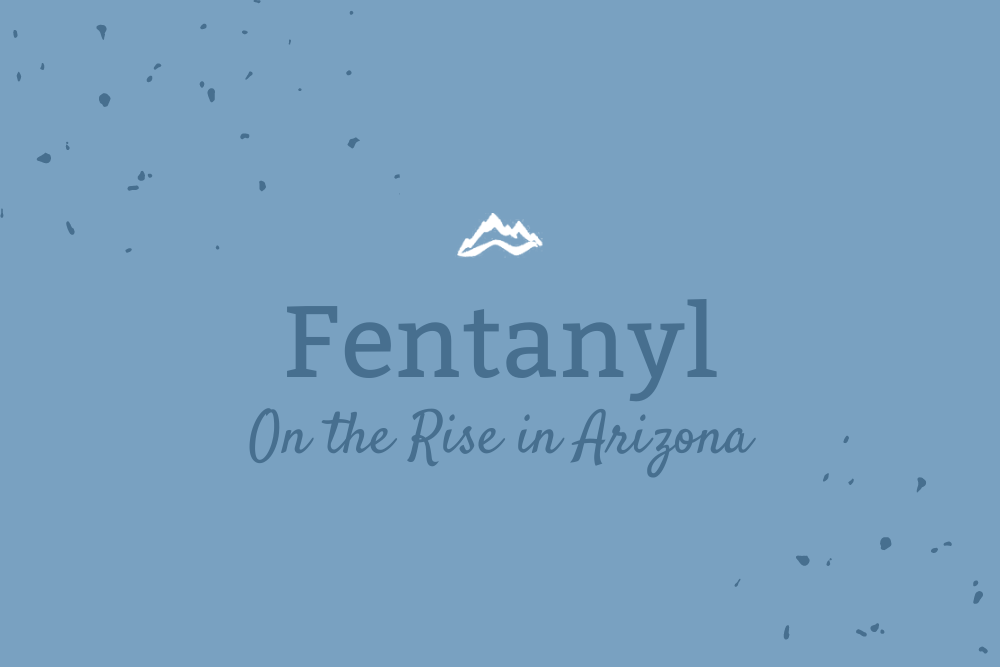Wherever you stand in border-security controversies, Arizona’s most dangerous Mexican “import” is illegal fentanyl, manufactured south of the border and smuggled into the United States.
Opioid Addiction: The Other Pandemic
The first wave of today’s opioid epidemic began in the 1990s, driven by indiscriminate prescription and careless use of medical painkillers. One symptom of opiate addiction is needing stronger doses to get the same effect; and as addictions increased, so did the demand for stronger opioids.
Since 2013, fentanyl—50 times more potent than heroin—has been near the center of the problem, partly because Mexican drug cartels have discovered a thriving market in fentanyl powder and pills. And fentanyl’s potency (one kilogram can get a million people high) makes it easier to smuggle high-profit-level amounts.
It takes just a quick Google search for “fentanyl seizures Arizona” to recognize the scope of the problem:
- United States Drug Enforcement Administration, December 17, 2021: “Record Fentanyl Seizure by DEA Phoenix, Scottsdale Police & the Arizona Attorney General’s Office as DEA Announces Nationwide Public Safety Surge.”
- Arizona Department of Public Safety, March 15, 2022: “Traffic Stop Leads to 36-Pound Fentanyl Seizure on Interstate 10 in Marana.”
- Scottsdale Police Department Public Information Office, April 8, 2022: “Scottsdale Police Traffic Stop Leads to $600,000 Worth of Fentanyl Seizure.”
Why Is Fentanyl So Dangerous?
The same potency that makes illegal fentanyl easy to smuggle also makes it a serious overdose risk. Two milligrams can be fatal, and it’s impossible to judge the amount in a pill (or the purity of a powder) by looking.
If that’s not bad enough, fentanyl is popular with dealers as an additive to stretch supplies of other drugs. Not only other opioid drugs, but substances as varied as benzodiazepines, cocaine and methamphetamine can contain significant amounts of fentanyl; so many people overdose on this drug without even knowing they’ve taken it.
Fentanyl is a major contributor to the nearly 2,000 opioid-overdose fatalities that occur each year in Arizona (in the United States as a whole, the April 2020–April 2021 total was 75,673).
Fentanyl Rehab
Some people also become addicted to medical fentanyl (typically prescribed to treat severe pain from major medical conditions) by ignoring official instructions and taking extra or inappropriate doses. You may have an addiction if:
- You obtain or take fentanyl by any means besides carefully managed medical prescription
- You have withdrawal symptoms (severe nausea, aching muscles, chills) after missing a dose
- You’re neglecting responsibilities and self-care in favor of substance use
If you even suspect you’re becoming addicted, don’t wait for things to get worse: talk to a doctor immediately and find out if you need detox and rehab. And don’t skip the rehab (counseling and long-term support): it’s vital to dealing with whatever underlying problems contributed to the addiction, and to building long-term motivation for living with purpose and not returning to drugs.
Addiction is a medical illness, and there’s nothing to be ashamed of in acknowledging the problem and asking for help. Often, our greatest strength is found in admitting to our weaknesses.
Arizona Women’s Rehab
Canyon Crossing is an Arizona treatment center for women seeking healing from fentanyl addiction and other substance use disorders. We believe that addiction is an illness to be met with grace and empathy, not shame and punishment—that true healing comes when a woman learns to respect herself and enjoy a purposeful life. Our programs include mental health care to further treat the whole person.
If you’re an Arizona woman struggling with compulsive drug use and overall feelings of hopelessness, you don’t have to keep suffering in silence. Contact Canyon Crossing now to learn how you can reclaim your life and integrity!
Recommended articles:
- “Arizona: High Intensity Drug Trafficking Area Market Analysis.” (U.S. Department of Justice)
- “Drug Overdose Deaths in the U.S. Top 100,000 Annually.” (Centers for Disease Control in Prevention)
- “Facts about Fentanyl.” (United States Drug Enforcement Administration)
- “Fentanyl Flow to the United States.” (United States Drug Enforcement Administration)
- “Fentanyl is making its way into various drugs sold in the U.S. Here’s how it gets there.” (PBS News Hour, 09/15/2021)
- “Fentanyl (Transdermal Route): Proper Use.” (Mayo Clinic)
- “Mexico Major Source of Fentanyl Entering U.S., Report Says.” (WebMD.com)
- “One Pill Can Kill.” (United States Drug Enforcement Administration)
- “Opioid Prevention.” (Arizona Department of Health Services)
- “Understanding the Epidemic.” (Centers for Disease Control and Prevention)
- “Why fentanyl is deadlier than heroin, in a single photo.” (StatNews.com, 09/29/2016)



